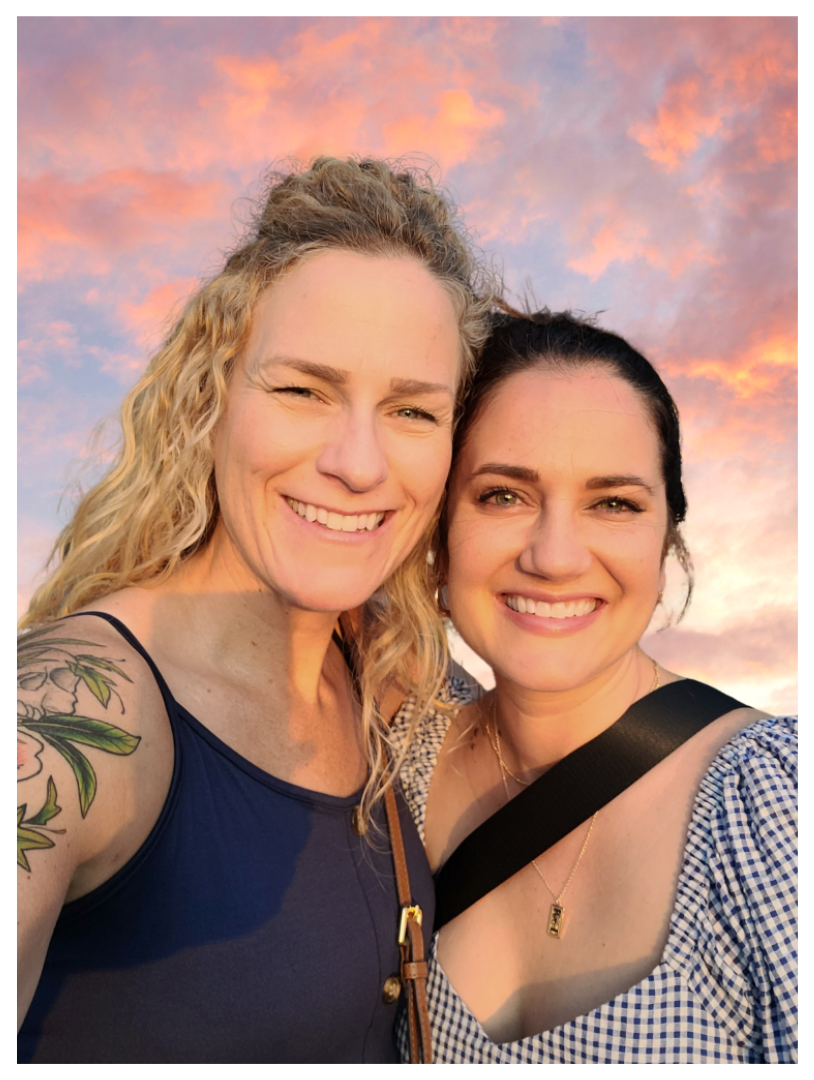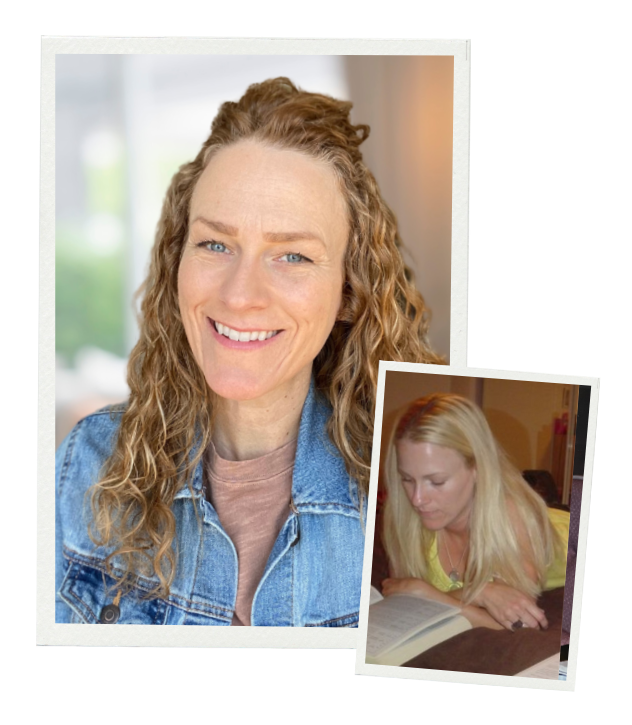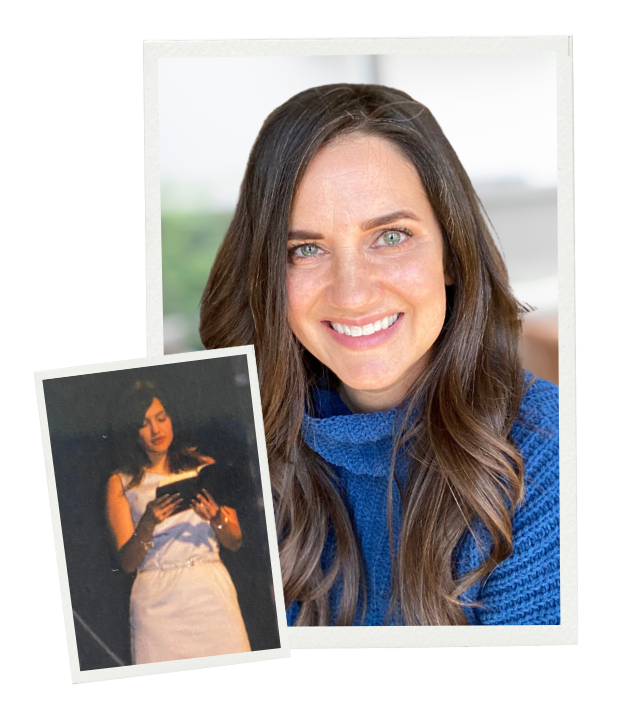
HI THERE!
We are Cara + Rachael.
We met in grad school in 2004, both of us quietly carrying questions about our faith that we didn’t yet have words for. We were youth and children’s pastors with lives built on the certainty of our beliefs. We were the religious good girls who did everything right, only to find ourselves unraveling the very thing we had once loved.
Even the word “deconstruction” did not exist yet, and social media was nothing like it is today, so we had no language or community to help us understand what we were feeling. We were simply two women sitting in classrooms earning our master’s degrees in Soul Care, slowly realizing that what we were studying was dismantling the very beliefs we had built our lives upon.
Few experiences require as much courage, grief, and re-building as leaving your faith.
Text.
For a while, I told myself I was fine. I had left. I was free. I could think for myself. Believe—or not believe—whatever I wanted.
But the truth was, I felt completely ungrounded. The structure I had been raised to rely on was suddenly gone, and with it went my sense of identity, purpose, and belonging. I had spent years being trained to be holy, to deny myself, to find meaning through sacrifice and service. And now, standing outside of all that, I felt like a stranger in my own life.
I would listen to old worship music and cry—not because I wanted to go back, but because part of me missed the certainty. I missed knowing exactly who I was supposed to be. I missed the community, the clear answers, the illusion of safety.
For the first three years, I felt like I was drifting. I wanted to go back, even though I knew I couldn’t. I didn’t know how to live in a world where I got to decide what was good and true. I had been so deeply conditioned to measure my worth by my spiritual performance that I didn’t know who I was without it.
And maybe the hardest part? No one from my church reached out. Not a phone call. Not a message. It was like I had disappeared—and in some ways, I had. I left behind everything I knew. And no one seemed to notice.
It was lonely. And it hurt. And at times, it felt like I had made a huge mistake

👩🏼🎓 M.A. Certified Coaches
We both hold a Master's degree in Soul Care from an accredited private University (since 2007), and are certified Spiritual Directors.
👋🏽 20 Years Out of the Church
This is our lived experiences. We left Evangelicalism two decades ago, giving us ample time and space to rebuild our lives.
🫱🏼🫲🏽 We are clinically trained
We've put in 100s of hours under clinical supervision in order to give you the best care.

I'm Cara.
I'm originally from Orange County but have been living in Chicago (best city ever) for the last 8 years with my husband and son.
I didn't grow up in Evangelicalism but converted when I was 11 years old. I think I was always looking for a place to belong, to feel like family, and I really found it in my church. I got very involved with the youth group and by 16 years old, I decided I wanted to become a youth pastor.
I went to Biola University for my undergrad where I got my BA in Youth Ministry and minor in the Bible. I was quite the good religious good girl. I was all in, on fire, and mystical. While everyone in high school was exploring their independence, I was converting my friends to Jesus and leading weekly Bible studies at my house. I deeply believed that my truth was the right one, so much so that I would go to Utah on my spring breaks in college to go door-to-door in hopes to convert Mormons.
